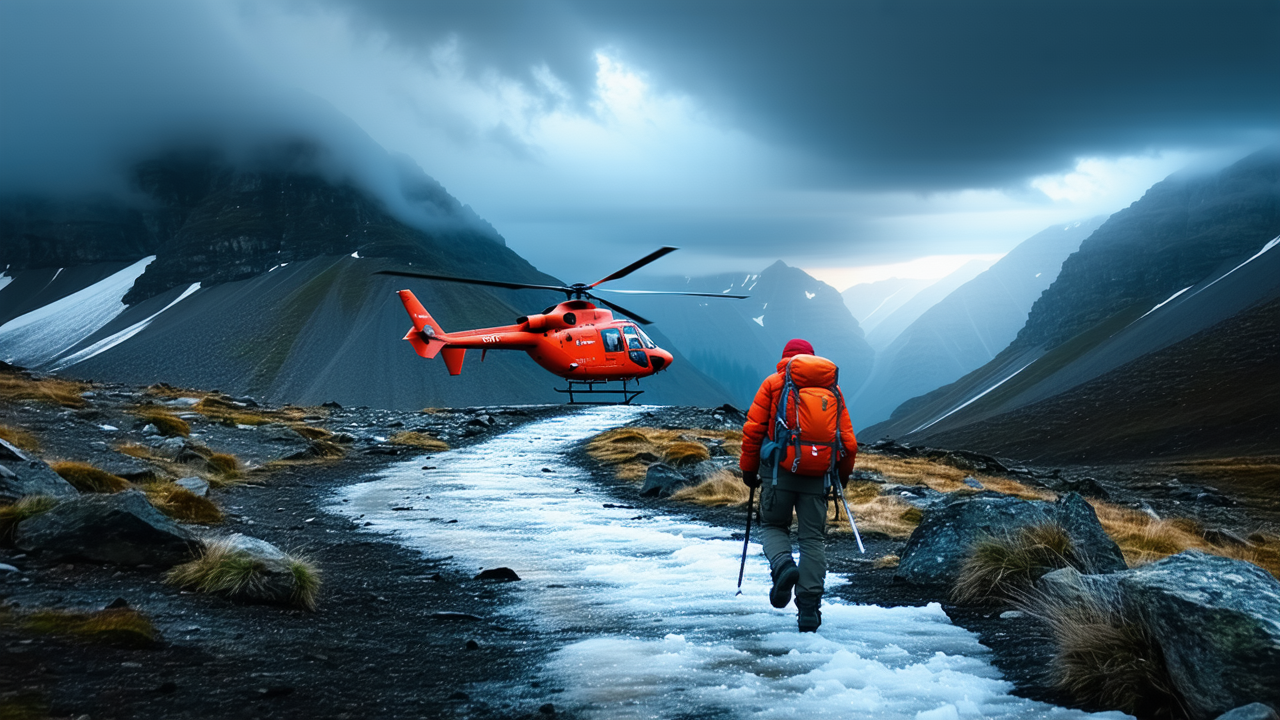Tongariro Alpine Crossing Rescue Highlights Winter Dangers, Police Warn
Tongariro Alpine Crossing Rescue Highlights Winter Dangers, Police Warn
A recent rescue operation on the Tongariro Alpine Crossing has once again brought the dangers of winter hiking in New Zealand into sharp focus. Police have emphasized the importance of preparation and awareness when venturing into alpine environments during the colder months.
On Saturday evening, around 7:30 PM, a man found himself in serious trouble on the Tongariro Alpine Crossing after a sudden change in weather conditions. According to Senior Constable Barry Shepherd of the Taupō Police Search and Rescue unit, the man realized he was unprepared for the harsh winter conditions and immediately called for help.
"He didn’t have food with him or any extra gear for warmth or shelter," Shepherd said. "He realized his error pretty quickly and called us."
The rescue team, including a helicopter and LandSAR (Land Search and Rescue), swiftly responded and managed to lead the man out of the area. Although he was extremely cold, he was fortunate to avoid serious injury.
"I think he knows he had a close call. If conditions had worsened or he had been unable to make a phone call, he’d have been in real trouble," Shepherd added. "Tongariro National Park in winter was a place that demanded respect."
Shepherd urged hikers to be fully prepared for the unpredictable nature of the alpine environment. "Anyone heading out into the alpine environment should take and know how to use ice axes and crampons, and wear suitable footwear. Take adequate supplies, clothing and shelter, and do your planning – know what the forecast holds and if you’re at all in doubt about what conditions might be like, don’t go."
Libby O’Brien, the Department of Conservation operations manager for Tongariro, echoed these sentiments. "Temperatures are often freezing, and drop even lower at night and at elevation. If you don’t have alpine experience and the right gear, you need to think long and hard about whether you’re going to be able to survive in these conditions."
Both Shepherd and O’Brien emphasized that even experienced trampers can find themselves in trouble if they are not adequately prepared. They encouraged visitors to check the Department of Conservation website for up-to-date information on conditions in Tongariro National Park during the winter months.
"We all love being out there, but ensure you know what you’re doing so you don’t put yourself and others at risk by being ill prepared," O’Brien said.
As the winter season approaches, it is crucial for hikers to recognize the risks and take necessary precautions. The Tongariro Alpine Crossing, while a stunning and popular destination, is not without its dangers when the weather turns severe.
Police and conservation officials are calling for greater awareness and preparation among those who plan to explore the backcountry, particularly in the alpine regions. The message is clear: respect the environment, be prepared, and know your limits.
